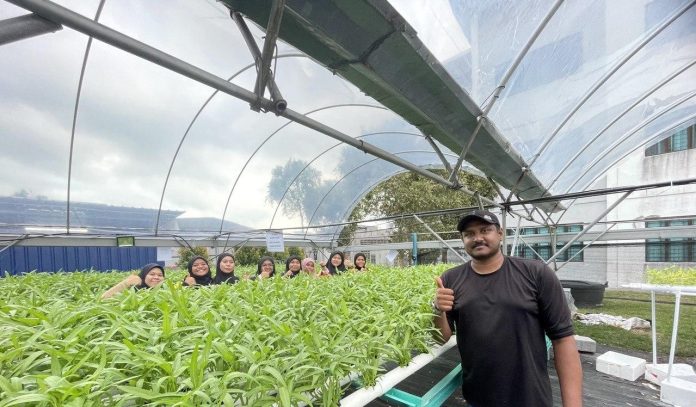
The Malaysian Nuclear Agency had organised the 11th Food Safety Seminar with the theme “Achieving Food Sustainability in the Era of Climate Change.”
Extreme weather, rising global temperatures and changes in rainfall patterns have caused major disruptions to the agricultural and food production sectors. This phenomenon not only affects the availability of food but also challenges the country’s food security in terms of production, distribution, and storage.
In light of the difficulties posed by climate change, the seminar’s organisers hope to improve knowledge and fortify the nation’s food sector’s resilience.
A variety of topics pertaining to food safety, quality control, halal aspects, law, processing technology, analysis, and the future of the food industry are covered in this seminar.
The purpose of this seminar is to explore problems and identify solutions for the pressing challenges posed by climate change.
The Director General of the Malaysian Nuclear Agency said in his speech that “the combination of nuclear technology, sound policy, and innovation in agriculture is the key to achieving food sustainability, even amid the increasingly critical challenges of climate change. The Atoms4Food initiative supported by the IAEA opens up great opportunities to strengthen food safety, not only in Malaysia but also globally.”
He also explained that based on current practice and consumption trends, agricultural production is expected to increase by about 70% in 2050 to meet future food demand.
To meet demand, Malaysia must strengthen its infrastructure by emphasising innovative nuclear techniques such as plant mutation breeding to create new crop varieties and better seeds, as well as molecular markers for food characterisation and detailed monitoring of soil and environmental conditions impacted by climate change.
Furthermore, the Sterile Insect Technique (SIT) is used to control pests like fruit flies, and isotopes can help reduce greenhouse gas emissions. The combination of these technologies strengthens the agricultural sector’s resilience to climate change.
This programme was inaugurated by Dr Rosli bin Darmawan, Director General of the Malaysian Nuclear Agency, in collaboration with the Malaysian Ministry of Health (KKM), Ministry of Agriculture and Food Security (KPKM), Ministry of Domestic Trade and Cost of Living, Department of Islamic Development Malaysia (JAKIM), Department of Veterinary Services Malaysia, Institute Malaysian Agricultural Research & Development (MARDI), as well as the National University of Malaysia (UKM). The industry is also represented by Farm Fresh Milk Sdn. Bhd. who provided support in organising this seminar.
Cooperation between the government, industry, and academia is critical to ensuring that nuclear technology is fully utilised to strengthen the country’s food security.
This is a significant step forward, and the Malaysian Nuclear Agency remains committed to mainstreaming nuclear technology, particularly in the Malaysian agricultural sector. Additionally, it can make the nation’s food industry more resilient to the increasingly complicated problems posed by climate change.



